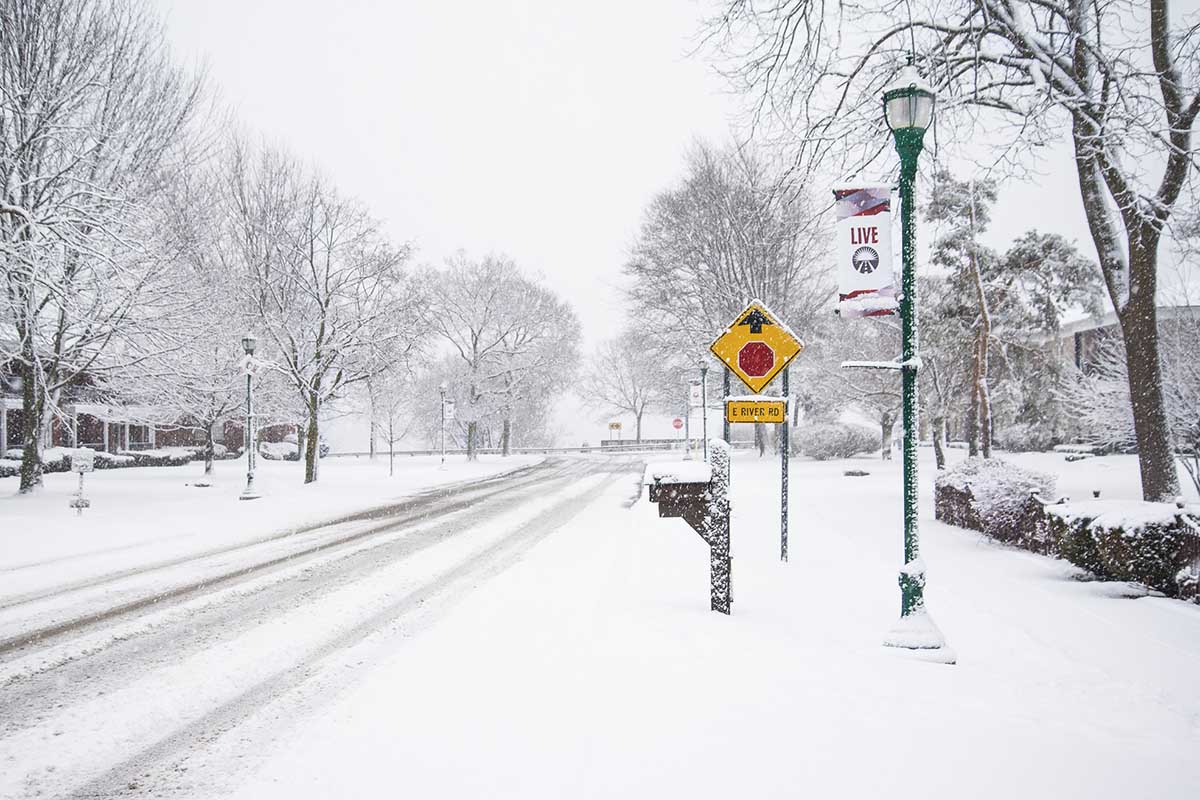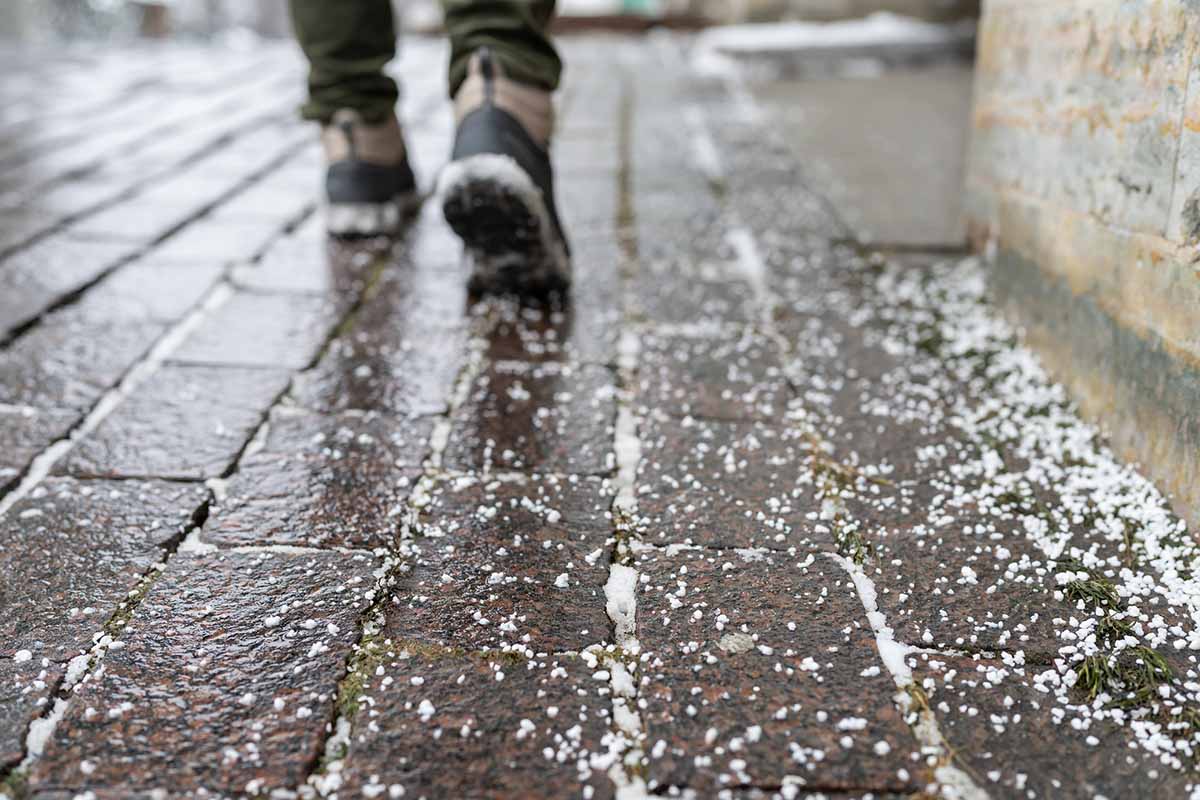If cold temperatures, ice, or snow are in your area’s forecast this winter, you might consider stocking up on rock salt. Rock salt is an invaluable tool for families and business owners who must stay safe during hazardous weather conditions.
Having a reliable plan of action for winter months can be a lifesaver. In this blog post, we’ll explore the five significant benefits of using rock salt all throughout the cold between October and March (or longer, depending on where you live!). Read ahead and discover why rock salt should be part of your seasonal emergency-preparedness game plan!
Rock Salt For Winter Weather Conditions: Rock salt is relatively inexpensive and easy to obtain
Rock salt has a variety of common uses and can be found at many stores and retailers worldwide. Its affordability and availability are appealing features that make it a popular choice among consumers.
One beautiful feature of rock salt is that it is often purchased in bulk, which makes it suitable for large-scale commercial applications. From brown bags to restaurant dining halls, bulk rock salt is a surprisingly versatile material with applications across various industries. Additionally, its longevity means it can be stored for long periods of time without significantly degrading.
It helps to melt ice and snow quickly, making roads safer for vehicles 
Road de-icing is an important part of winter safety. It helps to melt ice, snow, and other frozen precipitation quickly so that access roads are safe and passable; this makes road travel safer for everyone.
The salt and ice-melting contrivances used in the process are highly effective in helping eliminate dangerous ice buildup without spending excessive time clearing it corporately. Not only does this make driving safer — and reduce automobile accident rates — but it also means fewer hours spent by road workers during icy weather, which helps protect them from potential harm.
Rock salt can prevent the formation of ice on surfaces, such as sidewalks and driveways
Rock salt is an effective and cost-efficient way to prevent surface ice build-up. Due to its high salt content, it lowers the freezing temperature of the water while also accelerating the melting process.
Rather than using chemical de-icers or heated solutions, which can be expensive and typically require electricity, snow salt for sale offers a more economical solution. Although it is most commonly used on sidewalks and driveways, rock salt can also prevent ice in other places, such as around gutters where water may collect and freeze. When using rock salt, it is essential to consider the environment, such as pets or vegetation that could be affected by runoff from the melted ice.
Rock salt reduces the risk of vehicle accidents due to icy conditions
Winter weather can be unpredictable and lead to dangerous road conditions. During icy conditions, it’s important for drivers to take extra precautions when traveling in order to ensure their safety.
Rock salt is an effective and affordable way to reduce the risks of vehicle accidents due to icy conditions. The rock salt works by melting the ice on contact, creating a safer driving surface that helps reduce the likelihood of skidding or sliding while driving. Adding rock salt before a winter storm helps you prepare confidently and keep your vehicle steady during unpredictable weather. Rock salt is an excellent resource for reassuring a safe driving experience when navigating through wintery conditions.
Whether you have a public driveway or own a business, the safer driver conditions created by rock salt can also help to reduce the risks of third-party accidents on your property. Even during natural conditions like ice and snow, that individual would then have fair grounds to seek a personal injury lawyer to argue your negligence. Rock salt on your roads during even a slightly icy period is essential for your safety and that of everyone else.
Rock salt can also help keep pathways clear of snow and ice, making walking easier in cold weather
During winter, rock salt is an excellent tool for keeping outdoor pathways from becoming slippery from snow and ice. While traditional shoveling methods effectively remove large amounts of snow, rock salt ensures that pathways remain clear and passable even when small amounts of precipitation occur.
It works by lowering the temperature at which freezing occurs, meaning that pathways will not become icy as conditions start to approach the freezing point. Plus, it’s easy to apply since it only requires sprinkling it over your pathways once the weather starts colder. With a combination of regular clearing and rock salt use, walking outdoors during winter will be much safer and easier!
Tips for applying rock salt, depending on where it is being used
- Before winter weather arrives, spread a thin layer of rock salt on roads and other surfaces that are prone to icy conditions. This can help prevent ice and snow from forming in the first place.
- For existing ice and snow, use more aggressive quantities of rock salt so that the surface melts quickly before another freeze occurs.
- Spread rock salt evenly across the entire surface that needs deicing to ensure an even substance application.
- Monitor weather conditions regularly to determine how much rock salt should be applied in any given area or situation. In areas with extremely cold temperatures, more frequent applications may need to be made to ensure road safety.
Conclusion
The use of rock salt on pathways and driveways is a quick and simple way to keep your home and the roads safe. Not to mention, rock salt is readily available, cost-effective, and can be used to reduce the risk of slipping or vehicle accidents due to icy conditions.
Finally, rock salt can help make winter walking safer by keeping pathways clear from snow or ice buildup. Although snowy weather has a cozy charm to it, using rock salt can sometimes be the difference between a safe walk down the street and an injury. So, if you want peace of mind with this upcoming winter season, why not search for “rocksalt near me“? You might find that being proactive makes all the difference during cold weather.




















